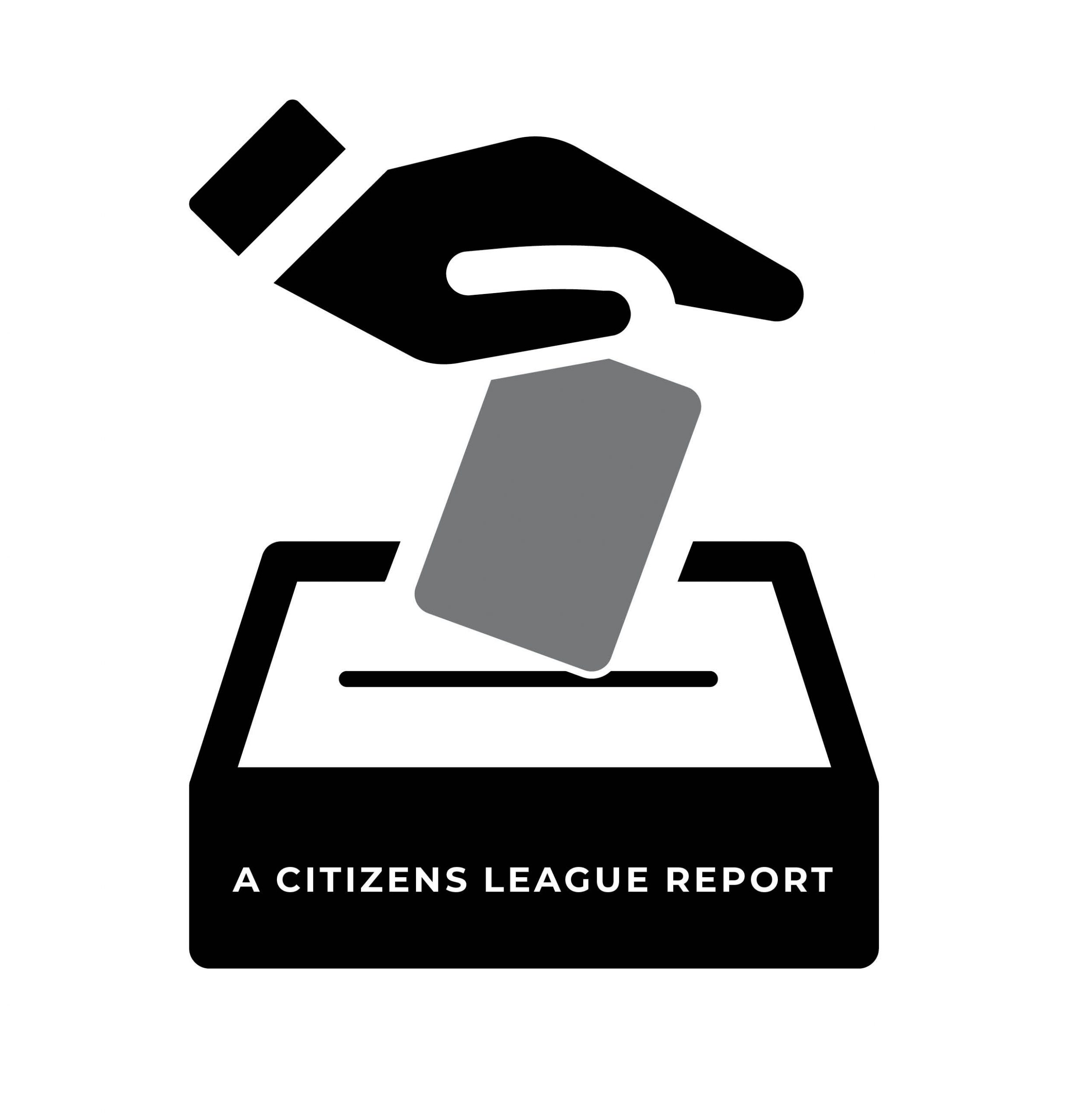Serving in Local Elected Office
Why people run, decline to run, remain serving, or step down from office, and the impact on local government
Local elected office is a vital part of U.S. democracy, a place where democracy can be seen in action. Casting a vote for a city council member or a mayor in one’s local community is a neighbor electing a neighbor to help their community thrive. Many serve in these roles on top of a full-time job for very little pay. In the full spectrum of electoral democracy, the local elected office remains a very personal, relational, and community-focused role.
In recent years, however, there has been growing concern that national ideological forces overly shape local elections and that single issues overtake broader community needs. Many say that the political climate at the local level has become toxic, for a variety of reasons. Candidates and elected officials speak of external pressures, verbal attacks, and even personal threats.
The Citizens League, as a nonpartisan nonprofit organization, is committed to engaging people of many perspectives in public policy and civic life. We seek to illuminate the ecosystem around governing and problem-solving at the local and regional levels. Thus, these growing concerns about local government led an organization like ours to ask how we can best support and what role we can play in ensuring a healthy civic climate, where people of various backgrounds have both the desire and the ability to run for office confidently and serve their communities effectively.
But first, we needed to understand, who was running and why? What causes people to step down from elected office? What is frustrating and rewarding about running for office and serving in local government?
The best way to find out is to ask the people doing the job. And so, we asked.
Throughout the summer and fall of 2022, the Citizens League sought out the voices and perspectives of those who have been asked to serve, those currently serving, and those running for local office (city council and mayor) in the Twin Cities (Minneapolis- Saint Paul) 7-County Metro area. This included outreach to 70 municipalities, home to approximately 3,163,104 people in the total Twin Cities 7-County Regional Metro. We heard from 80 individuals through surveys and one-on-one interviews.
This report is also offered as encouragement for those who would consider running for office at the local level, especially those who may initially say what could I bring to that role? or even think that’s not for me. Perhaps it will be, someday.
It’s also a reminder to encourage others to run: people do not often run out of their own volition but because of their networks and social contacts. People must be encouraged to run for elected office (and asked again and again!), especially those who are hesitant or underrepresented in local government based on their gender, age, race, economic access, ability, and political ideology.
It is our hope that this report contributes to robust conversations about local governance, and spurs actions to support this unique and vital aspect of civic life.
Serving in Local Elected Office
A Citizens League Report
Serving in Local Elected Office
A Citizens League Report
Share your feedback
As we continue to explore this topic, we invite you to share your feedback on our report, particularly if you have served in or run for local elected office.
Citizens League may use or share these comments, anonymously and de-identified, in our continued work on this topic. By completing this survey you agree that your comments may be used or shared in this manner.
